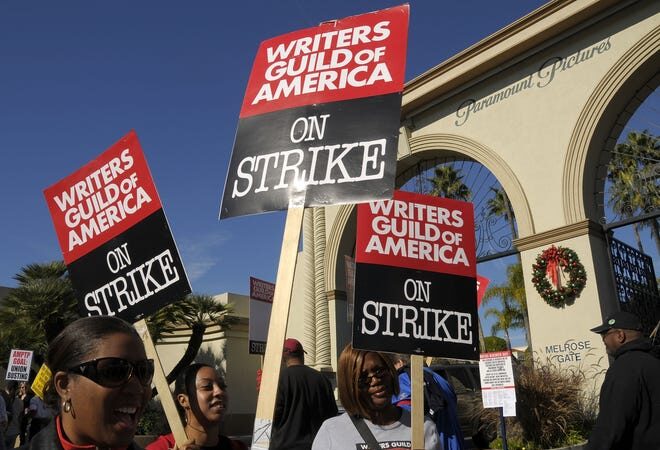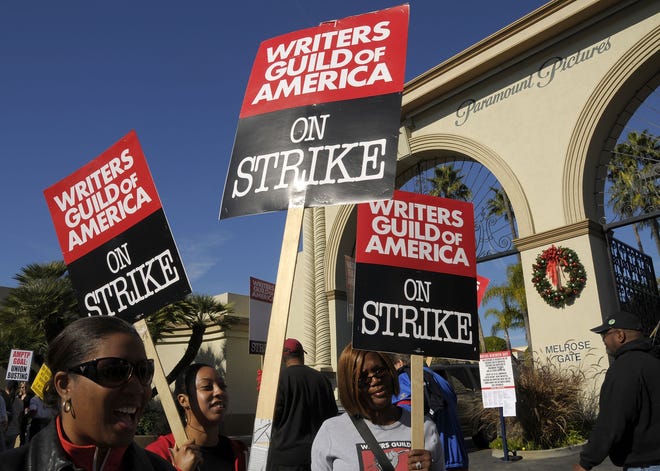
The sun rose and set over Los Angeles, but not a writer in the town picked up a pen or a keyboard.
For 100 days in 2007 and 2008, the Writers Guild of America, the union representing most of Hollywood’s scribes behind your favorite TV shows and films, went on strike, bringing the entertainment industry to a halt. Late night comedians had no jokes for their monologues. Movie stars had no lines to read on set. Reality and foreign TV shows (not represented by the union) ruled the airwaves. And it could all happen again on May 1.
That’s because the WGA’s current contract with the major Hollywood studios is expiring, and negotiations between the guild and Alliance of Motion Picture and Television Producers (AMPTP), which bargains on behalf of the nine largest studios, don’t seem like they’re headed toward an agreement. That means that writers of everything from network series like CBS’ “NCIS” to Marvel movies to streaming series including Netflix’s “Stranger Things” could leave their desks and hit the picket lines for the first time in 15 years.

Hollywood has changed significantly since 2008, led by the rise of streaming services. This has upended the traditional pay structure in the industry and, as the WGA argues, has led more writers to work harder and longer for less pay (streaming series can take longer to make but result in fewer episodes, and therefore often less pay for writers). At the same time, entertainment conglomerates are seeing financial losses and cutting jobs and shelving TV shows and movies left and right.














